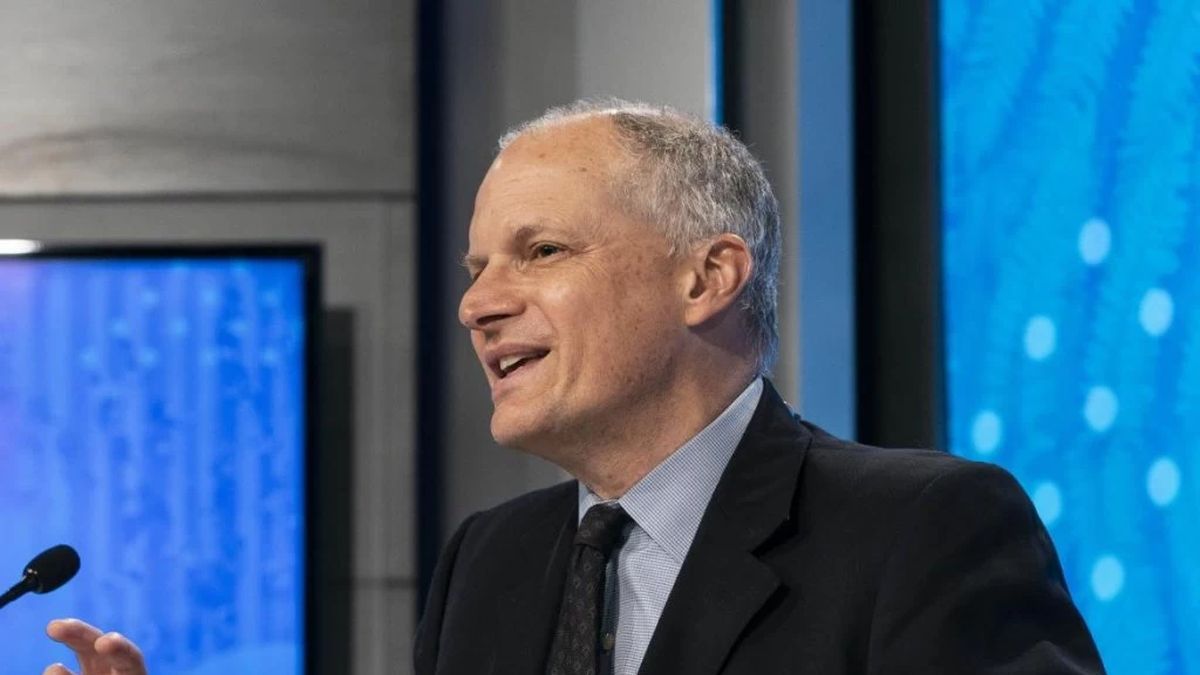Special envoy to Mendoza.- He International Monetary Fund (IMF) He agrees with some aspects of President Javier Milei’s plan, such as the reduction of the fiscal deficit, deregulation and spending cuts, but sees that the triad of exchange rate, restrictions and the accumulation of reserves by the Central Bank (BCRA) must be adjusted. He considered that it is key that, if progress is not made in this regard, it will be difficult to reach an agreement with the organization that involves the disbursement of dollars.
This is what he pointed out Alejandro Werner, former director of the Western Hemisphere Department of the The Argentine Institute of Finance Executives (AEF) said that it hopes that the Minister of Economy, Luis Caputo, will correct some aspects of the current path and opened the possibility that an agreement that brings fresh funds from the Fund to Argentina will not be reached.
The IMF sees the main crack in Caputo’s program: the currency controls and monetary policy
In dialogue with the moderator of the congress, Gustavo Bazan, Werner said that “the IMF has doubts about the sustainability of the economic program due to the problems it has in terms of monetary policy.” He also stated that “inflation cannot be lowered with artificial measures, such as the elimination of the PAIS tax” and considered that a better fiscal structure is the solution, not seeking a reduction in prices in the short term.
So, in contradiction with what Caputo announced a few days agowarned that, “There is unlikely to be an agreement with the IMF and that, in that case, the most likely thing is that the organization decides to work within the framework of a program with Argentina.” He warned that, if that happens, we will see a refinancing agreement and not the arrival of disbursements, as the Government expects.
However, he said that “It would be a huge mistake for the international financial community not to support Javier Milei’s government with US$20,000 or US$15,000 million more so that the implementation of new policies in the area of foreign exchange and debt control can be accelerated.”
The IMF has doubts about the currency controls
Regarding the exchange rate restrictions and the promise to lift them, Werner said that “it could be removed tomorrow and we could live with very high exchange rate volatility, but history shows that this is not politically sustainable.”“. He pointed out that what must be guaranteed when moving forward in this direction is the sustainability of the measure. “If the restrictions are eliminated and then re-implemented nine months later, it is useless,” he said.
And, in that sense, he explained that Argentina’s stabilization policy has been based on fiscal and exchange rate anchors until nowbut he said that, going forward, we must begin to think about a less rapid disinflation, perhaps, but one that allows it to accumulate reserves and advance in the lifting of the restrictions instead of continuing to advance in the opposite direction, as it is doing now: it uses dollars from the BCRA to stabilize the exchange rate in order to lift the restrictions.
“We believe that we need to move forward in this direction and start doing so gradually, as other countries have done, such as Chile, possibly with a more dollarized economy, but Argentina has to work on accumulating reserves to gradually lift the restrictions,” he said.
He concluded his speech by saying: “If there is an agreement on the exchange rate and capital control triad, there will be an agreement with the IMF, otherwise it is unlikely.”
Source: Ambito
I am Pierce Boyd, a driven and ambitious professional working in the news industry. I have been writing for 24 Hours Worlds for over five years, specializing in sports section coverage. During my tenure at the publication, I have built an impressive portfolio of articles that has earned me a reputation as an experienced journalist and content creator.




